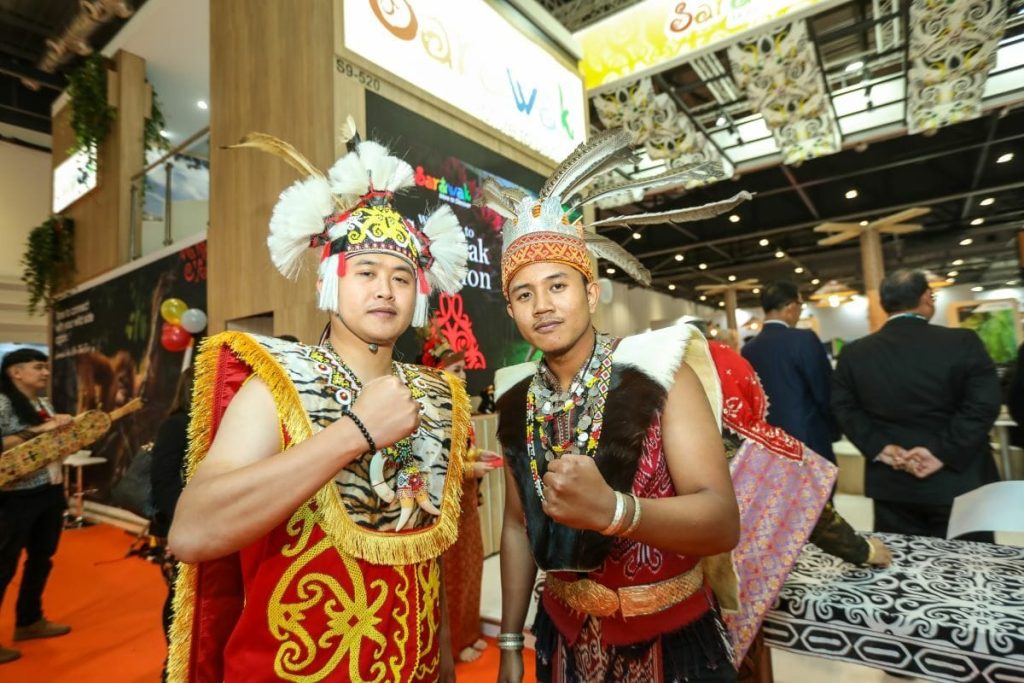Day two of World Travel Market London 2023 – the world’s most influential travel and tourism event – saw key topics discussed including diversity and inclusion, the future of travel and responsible tourism.
The future of travel: Kicking off with a discussion about the next generation of people to join the travel industry, the Institute of Travel & Tourism Future You session told students how they could prosper in an industry that will have 85 million vacancies globally by 2030.
Anne Lotter, Executive Director of the Global Travel and Tourism Partnership, said 40% of jobs in the industry are at the higher end of pay scales. “This is a sector where you can start at the bottom and climb very high,” she said.
Louie Davis, easyJet Holidays Senior Strategy Manager, described how he had approached 30 travel agencies for work experience. “Twenty-nine said no, one gave me work experience, persistence pays. Keep knocking on doors, eventually one will open,” he said.
The travel outlook: The travel industry faces potential global economic downturns and recession but the outlook from mid-2024 is positive, leading forecasters have predicted.
A WTM London conference session; Inflation, War and Societal Collapse, What’s Next for the World’s Economies? heard how high inflation, soaring borrowing costs and the Middle East conflict would impinge on buying patterns in many countries.
Dave Goodger, Managing Director, EMEA, Tourism Economics said: “We are looking at a potential recession in a lot of countries. We’re seeing high prices undermining a lot of people’s earning potential and higher interest rates are a real shock. There are a lot of warning signs.”
However, he said there were also positives: “People are diverting spend to essentials and cutting discretionary spend, but within that they are still wanting to travel.”
Andy Cates, Senior Economist at Haver Analytics, said conflicts in Israel, Ukraine and the potential China-Taiwan issue had influenced travel patterns and prices of goods. In addition, higher energy prices could be here to stay, he indicated, with real energy costs now 80% more than 25 years ago.
Destination updates: China was a separate debate on the Discover Stage. Adam Wu, CBN Travel Chief Operating Officer, said Chinese outbound tourism had fallen drastically from 2019’s 155 million to 40.4 million in the first half of 2023. However, he said this was still equal to the population of Spain, adding only 41.6% of international flights from China were operating compared to 2019.
Those Chinese who were travelling were spending 24% more than in 2019, when a total of $254.6 billion was spent – four times the amount spent by UK outbound tourists. The Chinese were now less inclined to travel in groups and wanted a more bespoke experience, he said.
Wu added: “There are 1.4 billion Chinese and 380 million middle class, we have 300 million taking up water sports. Just be prepared for the Chinese.”
He advised nations wanting to attract Chinese visitors: “Just remove the visa requirements, because the Chinese will generally go where there are fewer barriers.”
Social media marketing was key, he said, with Douyin, the Chinese version of Tik Tok, being a powerful channel.
Visit Maldives has launched a new segment on its website to showcase the destination’s different atolls and their suitability to different types of clients, such as families or those looking for nature holidays. It can be found at atolls.visitmaldives.com.
Plans for a new luxury mountain destination, Soudah Peaks, were unveiled to the world at WTM. Set within a natural park in the southwest of Saudi Arabia, the destination is 3,015 metres above sea level, the country’s highest point. Phase one will see the building of nine low-rise boutique and five-star hotels and the resort will also offer adventure experiences and wellness retreats, all in an immersive cultural environment.
Sri Lanka is bouncing back from last year’s recent political and economic turmoil with more than 1.5m tourists expected by the year end, up from 719,000 in 2022. “We are a resilient destination; we’ve got ourselves out of it,” said Harin Fernando, Minister of Tourism and Lands, who also shared that the destination is receiving interest from major hotel groups and is in talks with Bollywood about filming locations.
The country also used WTM to highlight its new global marketing campaign. Its tagline, You’ll Come Back for More, references the 33% of travellers who are repeat visitors to the destination.
Fernando also revealed adventure tourism was going to be the ’next big thing’ for Sri Lanka, with an influencer campaign already planned.
Sarawak today revealed two promotional tie-ups which will bring the nature-rich Malaysian state on the island of Borneo to a wider audience. A partnership with National Geographic Traveller will involve a series of eight articles and six one-minute videos for its website. Meanwhile, until April 2024, Tripadvisor users will have a dedicated Sarawak landing page to simplify the process of booking experiences in the destination.
The Ministers of Tourism of Brazil and South Africa, Celso Sabino and Patricia de Lille, signed a joint marketing agreement at WTM London to promote tourism between the two destinations.
Responsible tourism: Get ahead now on looming EU environmental reporting regulations is the message from The Travel Foundation, which today launched a guidance report for businesses in conjunction with the Spanish tourist office TurEspana. The European Union’s Corporate Sustainability Reporting Directive (CSRD) will apply first to large companies, who will submit reports from 2025, and later to SMEs.
Tour operators will be affected, but also suppliers such as tour guides and activity companies. The Travel Foundation Sustainable Tourism Specialist Rebecca Armstrong stressed that even without the regulations, the process could help businesses futureproof themselves by diversifying their products and communicating their good practices to their partners and customers.
She advised travel suppliers: “Next year I would suggest working with tour operators; what are their requirements? What are they going to be asking you for? How can you begin collecting that data in the most useful way?”
Just a Drop celebrated its 25th anniversary by announcing two new initiatives. Firstly, it is asking hotels, resorts and hospitality venues to sign up to ‘Tap Water for All’, where guests will have the option to add a £1 donation to their bill when choosing tap water with their meal. Secondly, Just a Drop announced a partnership with the Sustainable Hospitality Alliance, called ‘Better Futures for All’, in which they will collaborate to provide a holistic path out of poverty.
WTM London turned the spotlight on community initiatives in South Africa and India to showcase successful responsible tourism policies and partnerships.
Tourism bosses from Kerala, Madya Pradesh and the government of India talked about empowering local communities to develop sustainable tourism attractions with locally sourced products and rural homestays.
Glynn O’Leary, Chief Executive at Transfrontier Parks Destinations in South Africa, was joined on stage by Henrik Mathys from Mier Community – the co-owners of !Xaus Lodge with the Khomani San Community – and Morena Montoeli Mota, Principal Traditional Leader of Batlokoa ba Mota Traditional Community, owners of Witsiehoek Mountain Lodge to talk about how their partnerships helped them to overcome the pandemic.
The responsible tourism debate also looked at how European destinations are tackling the problems of overtourism.
Barcelona’s strategy aimed to reduce stag party visitors by focusing more on cultural events, while Flanders worked with communities in Bruges to develop cycling and heritage offerings.
Cinque Terre National Park also aims to reduce pressure on its scenic villages with a focus on culture rather than day-trippers.
The final responsible tourism session heard from aviation experts about advances in hydrogen technology to help the sector cut its carbon emissions.
Speakers from easyJet, Bristol Airport, Airbus, Cranfield and Rolls-Royce outlined developments with sustainable aviation fuels, biofuels, batteries and hydrogen.
Jenny Kavanagh, Chief Strategy Officer at Cranfield Aerospace Solutions, said: “Zero emissions flight is much closer than you think.”
Jane Ashton, easyJet’s Sustainability Director, was also optimistic, adding: “We are now seeing hydrogen test flights. It is rapidly becoming a possibility.”
Diversity and Inclusion Summit: Kat Lee, Chief Executive of the Family Holiday Association, highlighted the economic value of inclusion, pointing to statistics showing 16% of Brits haven’t taken a holiday at all – that’s 11 million people who could be customers of travel companies.
She urged travel firms to give “really comprehensive” information and support to people who have never booked a holiday before, adding: “You will reach more people, you will generate more custom and have a more successful, long-lasting business.”
Briony Brookes, Global Head of Public Relations for Cape Town Tourism, told delegates about the Limitless Cape Town project which helps differently abled travellers and has trained Africa’s first blind tour guide.
Courtney Maywald, Brand Strategy Director, Booking.com, outlined the online travel agency’s successful Travel Proud initiative, which has trained 50,000 accommodation providers to be more inclusive with LGBTQ+ travellers – and how it sponsors Pride events in Manchester and Amsterdam.
Rafael Feliz Espanol, Sales and Marketing Director, Karisma Hotels and Resorts, spoke about how his firm is catering to families with autistic children, by training staff and using ‘autism concierges’ to liaise with parents before the holiday.
The summit also heard from Darren Edwards, who suffered a spinal injury in a mountaineering accident in 2016 – but has since taken part in wheelchair sports and events such as seven marathons in seven days in destinations around the world.
He advised travel companies to use role models to empower others with disabilities.
Diversity and inclusion experts urged delegates to make a start on improving the representation of different groups among their workforces.
Katie Brinsmead-Stockham, founder of Hotel Hussy, said one quick change would be to add pronouns and the pronunciation of your name to your email signature for “instant inclusion”.
Thea Bardot, Chief Executive at Lightning Recruitment, added: “You can make so much without a budget by clocking your language in your business and personal life – look at words and phrases and be welcoming and inclusive.”
Atlyn Forde, diversity and inclusion consultant and founder of Communicate Inclusively, warned that fear can be a barrier but “it’s ok to make mistakes” – asking questions and having conversations was her advice.
The queer travel market is set to reach more than double its pre-pandemic levels by 2030, according to Jenny Southan, founder of Globetrender.
Hosting a session on LGBTQ+ travel, she said travel spending from queer people reached $218 billion in 2019 and, by 2030, it is predicted to reach $568.5 billion.
However, Janis Dzenis, Communications Director and PR at WayAway, warned safety is still the major concern for many LGBTQ travellers, with research showing that half of them alter the way they behave overseas or dress differently to how they would at home.
Uwern Jong, Editor-in-Chief at OutThere magazine, said safe spaces play “a huge role” and pointed to developments such as the hotel accreditation developed by IGLTA (International Gay and Lesbian Travel Association).
He also highlighted destinations that are safe, friendly and welcoming, such as Malta, California, Netherlands, Switzerland and Australia.
Aisha Shaibu-Lenoir, founder of Moonlight Experiences, spoke about being an LGBTQIA+ ambassador for youth brand Contiki, advising on group travel policies, use of pronouns and training of drivers and managers.




